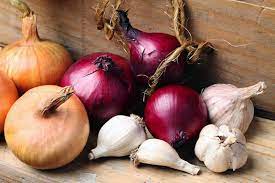Introduction
In recent years, there has been a growing interest in the study of exosomes, small extracellular vesicles that play a crucial role in intercellular communication. Exosomes are released by various cell types and carry a cargo of proteins, lipids, nucleic acids, and other molecules. They have been extensively studied in animals and humans, but their role in plants has only recently started to emerge. Plant exosome polyomics is an emerging field that aims to unravel the complex molecular interactions mediated by plant exosomes. This blog post explores the significance of plant exosome polyomics and its potential implications for plant biology and agriculture.
Understanding Plant Exosomes
Plant exosomes, also known as extracellular vesicles or EVs, are small membrane-bound vesicles that are released by plant cells into the extracellular space. They are involved in intercellular communication and can transfer various molecules, including proteins, nucleic acids, and metabolites, between cells. Plant exosomes have been found in various plant species, including Arabidopsis, rice, and maize, suggesting their widespread presence in the plant kingdom.
Plant exosomes are structurally similar to exosomes found in animals and humans. They are typically spherical in shape and have a lipid bilayer membrane. The cargo carried by plant exosomes can vary depending on the cell type and environmental conditions. It is believed that plant exosomes play a role in regulating plant growth and development, as well as in response to biotic and abiotic stresses.
Polyomics Approach to Plant Exosomes
Plant exosome polyomics is a multidisciplinary approach that combines various omics technologies, including genomics, proteomics, metabolomics, and lipidomics, to study the composition and function of plant exosomes. This approach allows researchers to comprehensively analyze the molecular content of plant exosomes and gain insights into their roles in intercellular communication.
Genomics: Genomic analysis of plant exosomes can provide information about the genes involved in exosome biogenesis and cargo sorting. It can also help identify specific RNA molecules. Such as microRNAs and long non-coding RNAs. That are enriched in exosomes and may play a role in intercellular communication.
Proteomics: Proteomic analysis of plant exosomes can reveal the proteins that are selectively packaged into exosomes and transferred between cells. This can provide insights into the functional roles of exosomes in plant development, stress responses, and defense mechanisms.
Metabolomics: Metabolomic analysis of plant exosomes can identify the small molecules and metabolites that are transported between cells. This can shed light on the metabolic pathways and signaling networks involved in intercellular communication.
Lipidomics: Lipidomic analysis of plant exosomes can uncover the lipid composition of exosome membranes and lipid signaling molecules that are involved in exosome biogenesis and function.
Exosomes are a type of extracellular vesicles, small membrane vesicles of endocytic origin secreted in cells with a lipid bilayer structure, widely present in various body fluids and cell culture supernatants, and carry active substances such as proteins, lipids, metabolites, and multiple nucleic acids. Large-scale polyomics analysis of exosomes can help in marker discovery, clinical diagnosis, and disease mechanism research.
Advantages of Exosome
- The ability of exosomes to act as biomarkers relies on the fact that they are rich in specific selective markers and that these markers represent only a tiny fraction of the secreted material. Thus, exosomes can detect low abundance nucleic acid or protein biomarkers that are difficult to detect with existing assays, and their biomarker strategy truly demonstrates that “less is more”.
- The lipid bilayer of exosomes protects their contents from nuclease and protease activity. And the extraction of exosomes from body fluids is perform non-invasive, making them an ideal alternative tool for early non-biopsy cancer detection.
Implications for Plant Biology and Agriculture
The study of plant exosome polyomics has the potential to revolutionize our understanding of plant biology and agriculture. Here are some potential implications:
Intercellular Communication: Plant exosomes are likely to play a crucial role in intercellular communication, allowing plants to coordinate growth and development, respond to environmental cues, and defend against pathogens. Understanding the molecular mechanisms underlying exosome-mediated communication can provide new insights into plant physiology and improve our ability to manipulate plant traits.
Stress Responses: Plant exosomes are known to be involved in stress responses, including responses to drought, heat, and pathogen attack. By studying the cargo carried by exosomes under different stress conditions. Researchers can identify key molecules and pathways involved in stress signaling and develop strategies to enhance plant resilience.
Crop Improvement: Plant exosome polyomics can contribute to crop improvement by identifying key molecules and pathways involved in important agronomic traits. Such as yield, disease resistance, and nutrient uptake. Manipulating exosome-mediated communication may offer new avenues for crop enhancement and breeding.
Biomarker Discovery: Plant exosomes have the potential to serve as biomarkers for plant health and stress responses. By analyzing the molecular content of exosomes. Researchers can develop non-invasive diagnostic tools for monitoring plant health and detecting early signs of stress or disease.
Conclusion
Plant exosome polyomics is an exciting and rapidly evolving field that holds great promise for advancing our understanding of intercellular communication in plants. By combining various omics technologies. Researchers can unravel the complex molecular interactions mediated by plant exosomes and gain insights into their roles in plant biology and agriculture. The discoveries made in this field have the potential to revolutionize crop improvement strategies. Enhance plant resilience to stress, and contribute to sustainable agriculture practices. As research in plant exosome polyomics continues to progress. We can expect exciting new discoveries that will shape the future of plant science.
Exosome Polyomics Solutions at Lifeasible
Lifeasible offers both exosome extraction and identification services. And exosome polyomics analysis, including exosome proteomics, exosome RNA analysis, exosome lipidomics, exosome whole transcriptome sequencing services. And exosome metabolites, all of which require high technical standards to ensure high-quality and reliable results.
As a biotechnology company, Lifeasible specializ in agricultural science. Offering a wide variety of agro-related services and products for environmental and energy solutions.
Our plant breeding and culture services support increasingly stringent safety and quality standards in the agricultural industry. Relying on our revolutionary techniques, various molecular breeding services. Meanwhile, extensive analytical solutions reach out to a wider community of researchers in environmental and energy fields. Holding a strong tie between biological innovation and transformation in the ecosystem. Lifeasible now leverages the expertise and strengths of each to create its unique platform that is accessible to all leaders working in agriculture, botany, biology, ecology and environmental science. Having taken on step forward, we also provide lab-to-field solutions that advance the breeding process for farmers and breeders. Diverse analytical tools are available for breeding or quality control purposes in identification and production of plants.




